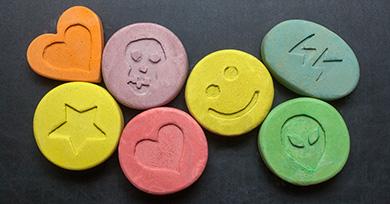
Breadcrumb
- Home
- Search a publication
- Illegal synthetic drugs production and waste in Fl...
The illegal production of synthetic drugs (e.g. amphetamines, MDMA/ecstasy, methamphetamine) poses significant environmental risks, including soil and water contamination.

This analysis focuses on Flanders, Belgium, examining the latest trends in synthetic drug production and the dumping of toxic waste materials generated during drug production. Based on a media analysis of Flemish newspaper articles published between 2020 and 2023, we consider environmental-oriented responses implemented to date and reflect on possible developments in this area.
Production of synthetic drugs in Flanders has become more widespread in recent years, and despite a temporary impact of the COVID-19 pandemic, the market for these drugs has shown sustained resilience. The direct discharge of chemical waste into soil, waterways, and sewage systems presents detection challenges, and has the potential to exacerbate environment harms.
A range of environmental-oriented responses have been introduced so far, primarily reactive in nature. Future efforts may benefit from considering more proactive action and drawing lessons from environmental harm reduction practices from other fields.